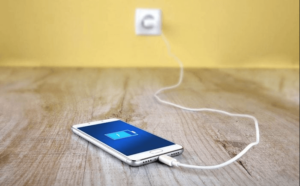With the proliferation of wireless networks and the ubiquity of Wi-Fi enabled devices, it has become increasingly common for people to rely on Wi-Fi connectivity when they are away from home for an extended period of time. Whether it is to stay connected to work or to keep in touch with family and friends, Wi-Fi has made it possible to stay connected no matter where you are.
However, while the benefits of Wi-Fi connectivity are clear, there are also potential dangers associated with turning on Wi-Fi while away from home for a long time. In this article, we will explore some of the risks and hazards that individuals should be aware of when they use Wi-Fi in public places.
-
Malicious attacks on public Wi-Fi networks
One of the biggest risks of using Wi-Fi in public places is that these networks are often unsecured, which means that anyone can potentially access your data and personal information. Cybercriminals can use various techniques to intercept and steal data transmitted over these networks, such as man-in-the-middle (MitM) attacks or packet sniffing.
With a MitM attack, a cybercriminal can intercept and modify the data that is transmitted between your device and the Wi-Fi network. This means that the attacker can potentially steal your login credentials, banking information, and other sensitive data. Similarly, with packet sniffing, an attacker can intercept and read the data that is transmitted over the network, including your browsing history, email messages, and other sensitive information.
To mitigate these risks, it is important to avoid using public Wi-Fi networks whenever possible. If you must use public Wi-Fi, you should always connect to a trusted virtual private network (VPN) that encrypts your data and hides your IP address from potential attackers.
-
Identity theft and fraud
Another risk associated with using public Wi-Fi networks is that cybercriminals can use the information they gather from your device to steal your identity or commit fraud. For example, if you enter your credit card information or login credentials on a public Wi-Fi network, a cybercriminal could potentially intercept that information and use it for malicious purposes.
To avoid this risk, you should always be cautious about the information you enter on public Wi-Fi networks. Never enter sensitive information like credit card numbers, social security numbers, or passwords unless you are certain that the network is secure and that you are connected to a trusted VPN.

-
Exposure to malware and viruses
Another risk associated with using public Wi-Fi networks is that your device can become infected with malware or viruses. Cybercriminals can use various techniques to infect your device with malware, including phishing attacks, social engineering, and drive-by downloads.
Phishing attacks involve tricking users into providing personal information or downloading malware by pretending to be a legitimate entity, such as a bank or a government agency. Social engineering involves manipulating users into divulging sensitive information by exploiting their trust or emotions. Drive-by downloads occur when a user visits a malicious website that automatically downloads malware onto their device.
To avoid these risks, you should always be vigilant when using public Wi-Fi networks. Avoid clicking on links or downloading attachments from unknown sources, and keep your antivirus software up-to-date to protect against malware and viruses.
-
Physical theft of devices
Another risk associated with using public Wi-Fi networks is the physical theft of your device. If you are using your device in a public place, such as a coffee shop or airport, it is possible for someone to steal your device when you are not looking. This can result in the loss of sensitive information, as well as financial loss if the device was expensive.
To mitigate this risk, you should always keep your device with you and be aware of your surroundings. Do not leave your device unattended or in a visible location where it could be easily stolen.
-
Exposure to inappropriate content
Another potential danger of turning on Wi-Fi while away from home for a long time is exposure to inappropriate content. When using public Wi-Fi networks, users may inadvertently come across explicit or offensive content, such as pornography, hate speech, or violent content.
This can be particularly concerning for parents who want to protect their children from inappropriate content. Children who are unsupervised while using public Wi-Fi networks may be exposed to content that is not age-appropriate or that may be harmful to their emotional or psychological well-being.
-
Public Wi-Fi network limitations
Public Wi-Fi networks often have limitations and restrictions that can be problematic for users. For example, many networks limit the amount of data that can be transmitted over the network, which can be frustrating for users who need to download large files or stream video content. Similarly, some networks may block access to certain websites or services, which can limit the usefulness of the network for certain users.
To avoid these limitations, users may need to find alternative methods for accessing the internet, such as using their mobile data plan or finding a different Wi-Fi network that meets their needs.

-
Potential legal issues
Using public Wi-Fi networks can also expose users to potential legal issues, particularly if they engage in illegal activities while connected to the network. For example, if a user downloads copyrighted material or engages in illegal activities like hacking or cyberbullying, they could potentially face legal consequences.
To avoid these risks, users should be aware of the laws and regulations in their jurisdiction, and should avoid engaging in any illegal activities while connected to public Wi-Fi networks.
-
Impact on device performance
Finally, using public Wi-Fi networks can also have an impact on device performance. Because public networks are often crowded and may have limited bandwidth, users may experience slow internet speeds or dropped connections. This can be frustrating for users who need to complete tasks quickly or who rely on a reliable internet connection for work or other activities.
To mitigate these risks, users may need to be patient and take steps to optimize their device and network settings to ensure the best possible performance.
Conclusion
In conclusion, while Wi-Fi connectivity has revolutionized the way we stay connected to the internet, there are also potential dangers associated with turning on Wi-Fi while away from home for a long time. Users should be aware of the risks associated with using public Wi-Fi networks, including malicious attacks, identity theft and fraud, exposure to malware and viruses, physical theft of devices, limitations and restrictions, potential legal issues, and impact on device performance. By taking steps to mitigate these risks, users can stay connected and stay safe while using public Wi-Fi networks.










